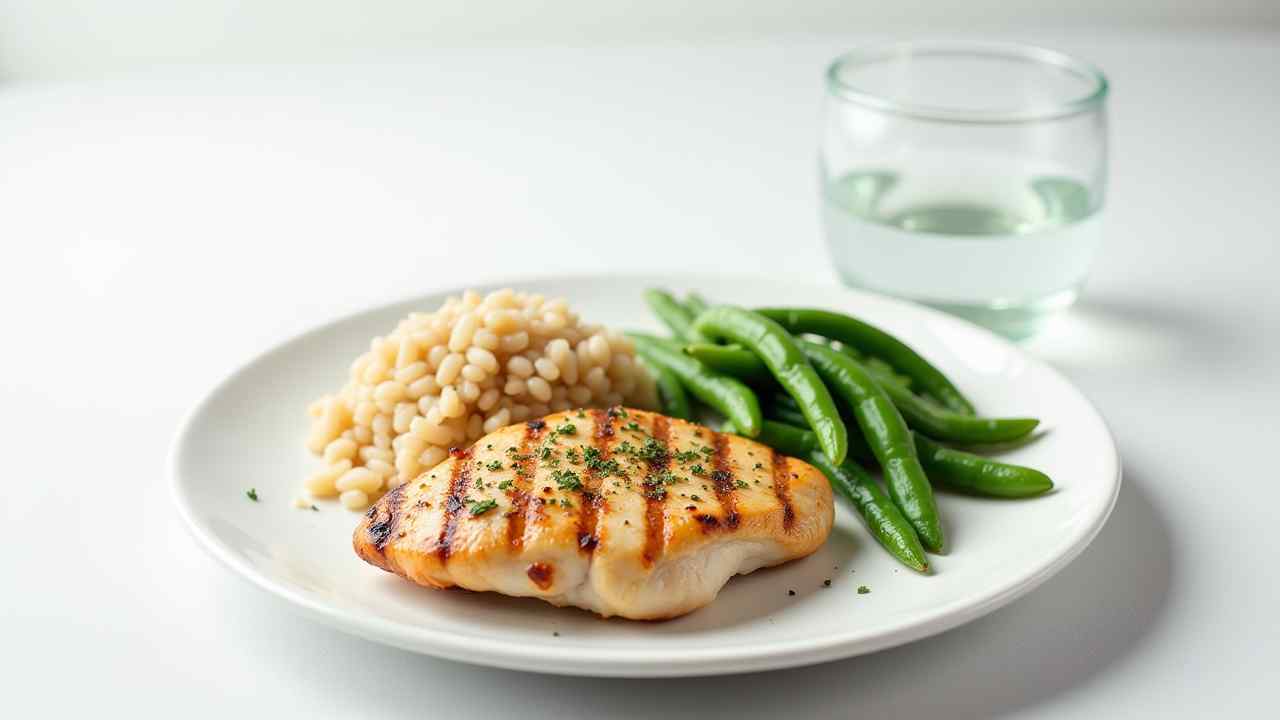
❤️ A Lifesaving Guide to the Low-Sodium Diet for CHF
❤️ A Lifesaving Guide: The Low-Sodium Diet for CHF (Congestive Heart Failure) ❤️
❗ CRITICAL MEDICAL INFORMATION: A low-sodium diet for CHF is a medical necessity, not a lifestyle choice. It must be prescribed and managed by your doctor and a registered dietitian. The sodium limits and food choices are specific to your personal health condition. This article is for informational purposes only.
Congestive Heart Failure (CHF) is a serious condition. It means the heart cannot pump blood effectively. Managing CHF involves medication and lifestyle changes. One of the most critical changes is diet.
A strict low-sodium diet is essential. It is one of the most powerful tools you have. It helps manage symptoms and improve your quality of life. Let's explore why this diet is so important. 🩺
🤔 Why is a Low-Sodium Diet Crucial for CHF?
Understanding the role of sodium is key. Sodium directly impacts the fluid levels in your body. For a person with CHF, this balance is vital. The connection is simple and direct.
First, sodium makes your body retain water. Think of the phrase, "where salt goes, water follows." Eating salt causes your body to hold onto extra fluid. This increases the total amount of fluid in your bloodstream.
This extra fluid makes your heart work harder. For a heart already weakened by CHF, this is a dangerous strain. It is like trying to pump water through a hose that is overfilled. The heart has to struggle against the extra volume.
This extra work can worsen CHF symptoms. It can cause fluid to back up in your lungs. This leads to shortness of breath. It can also cause swelling (edema) in your legs, ankles, and abdomen. A low-sodium diet for CHF directly reduces this strain.
🧂 What is the Typical Sodium Limit for CHF?
Your doctor will give you a specific daily sodium goal. This is usually measured in milligrams (mg). For many people with CHF, the limit is 2,000 mg per day. Some may need to restrict it even further, to 1,500 mg.
To follow this, you must read nutrition labels. Look for the "Sodium" line on the label. This will tell you the mg per serving. This simple habit is essential for success. You will be surprised where sodium hides.
✅ What Foods Should You Eat on a CHF Diet?
The best low-sodium diet for CHF focuses on fresh, whole foods. These foods are naturally low in salt. Cooking at home from scratch is the best way to control your sodium intake. Your shopping cart should be full of:
- Fresh or Frozen Fruits & Vegetables: Apples, berries, broccoli, and leafy greens are great choices.
- Fresh Proteins: Unprocessed chicken, turkey, fish, and lean cuts of beef.
- Whole Grains: Oatmeal, brown rice, and quinoa cooked without salt.
- Healthy Fats: Unsalted nuts, seeds, and olive oil in moderation.
🚫 What High-Sodium Foods Must Be Strictly Avoided?
Knowing what to avoid is the most important part. Sodium is added to most processed and packaged foods. You must become a detective and avoid these high-sodium culprits. Your heart will thank you.
- Processed Meats: Avoid bacon, sausage, hot dogs, and deli meats.
- Canned Foods: Canned soups and vegetables are loaded with salt. Look for "No Salt Added" versions only.
- Frozen Dinners: Most pre-made frozen meals are extremely high in sodium.
- Restaurant & Fast Food: This is a major source of hidden salt. Eating out is very difficult on this diet.
- Salty Snacks & Condiments: Avoid chips, pretzels, pickles, soy sauce, and most bottled dressings.
🌿 How Can You Cook with Flavor Without Using Salt?
You can still enjoy delicious food. You just need to use other seasonings. Your pantry should be stocked with salt-free flavor boosters. Experiment with these to find what you love.
Herbs and spices are your best friends. Use garlic powder (not garlic salt), onion powder, paprika, and chili powder. Fresh or dried herbs like rosemary, thyme, and dill add amazing flavor. A squeeze of fresh lemon or lime juice can brighten any dish.
❗ A very important warning: Do not use salt substitutes unless your doctor approves them. Many contain potassium chloride. For people with kidney problems, this can be very dangerous. Always ask your doctor first.